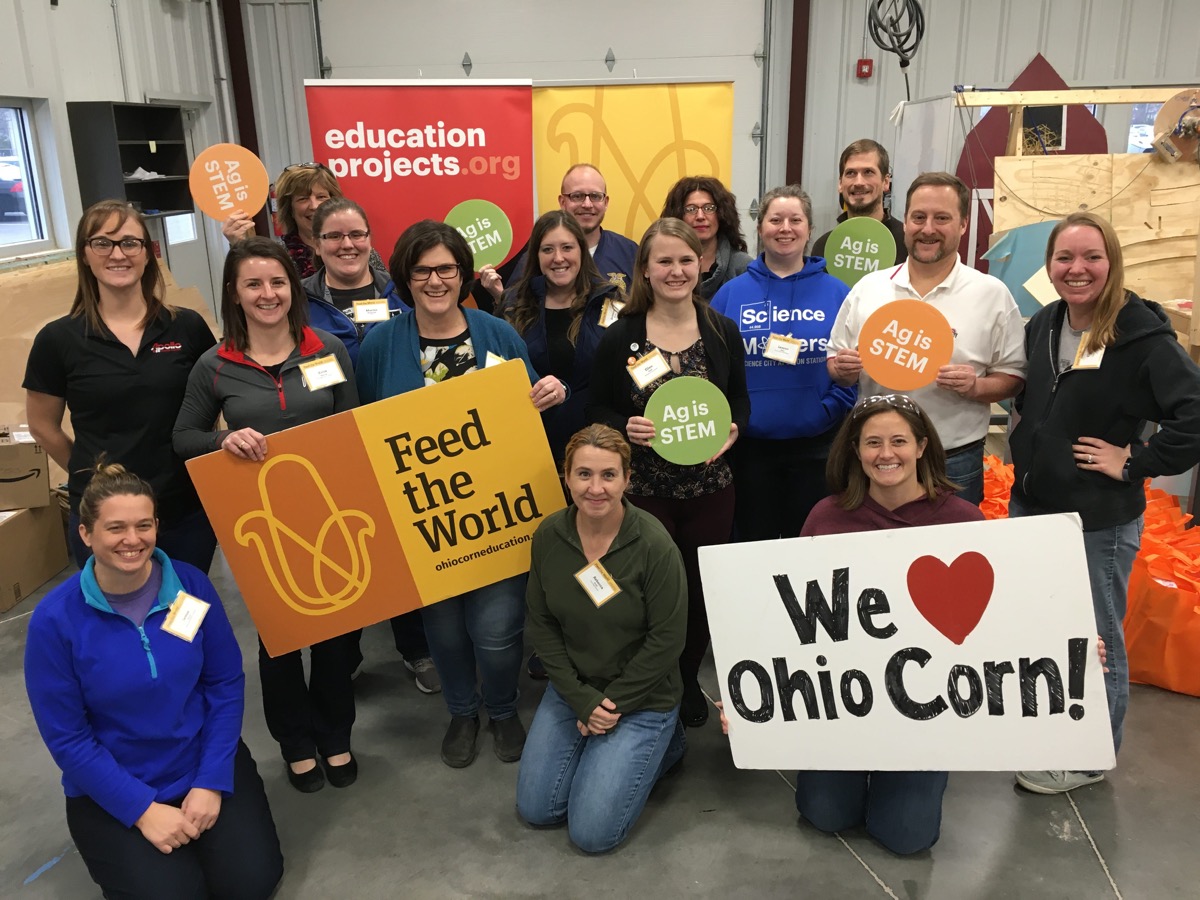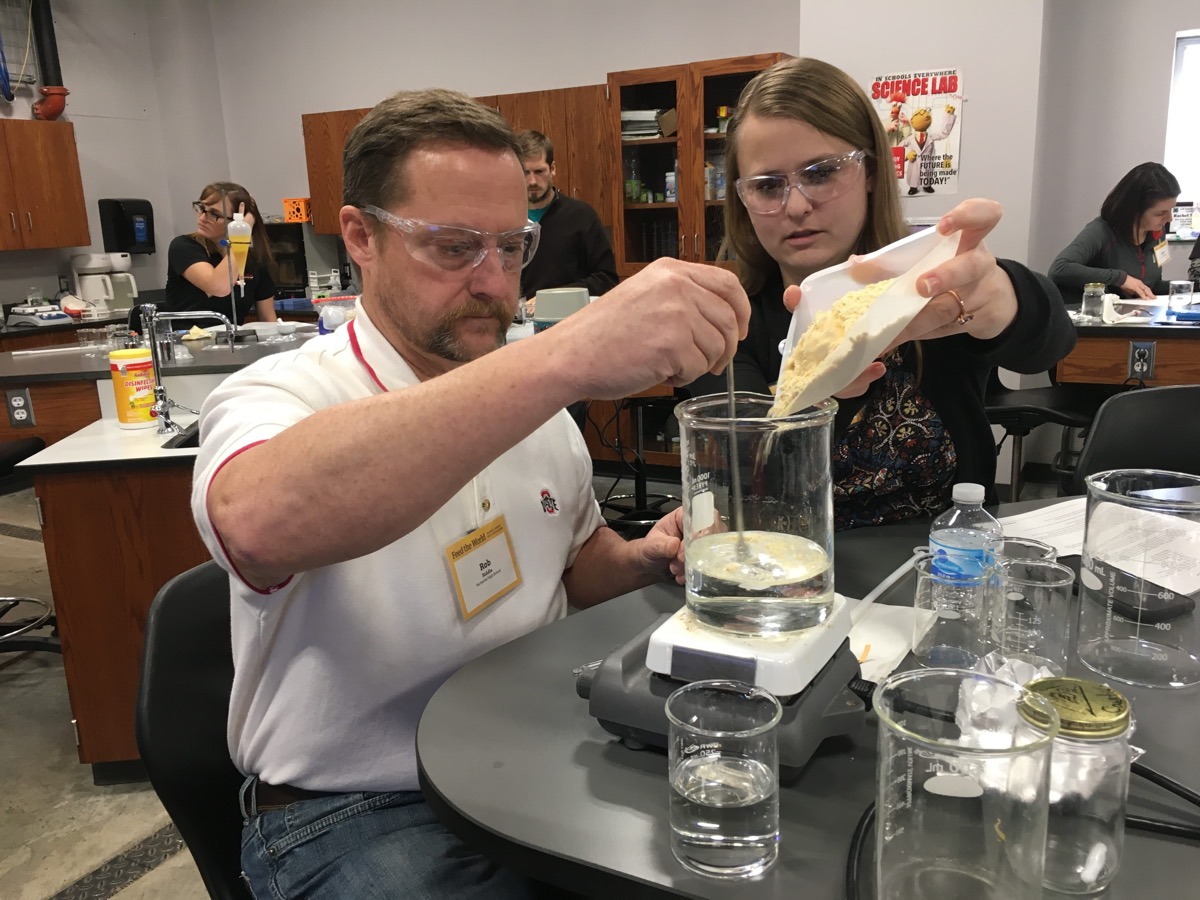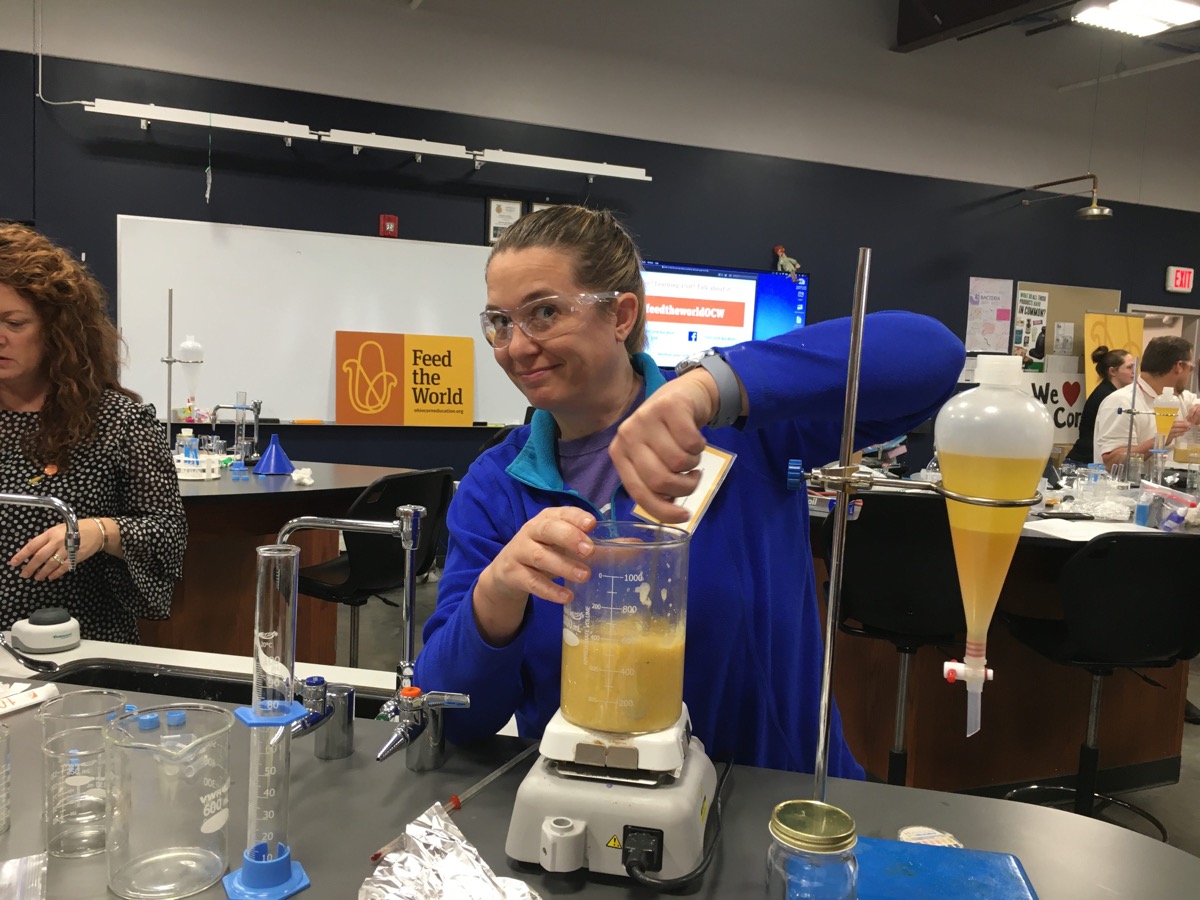
Diesel engines such as trucks, tractors, and heavy motors rely on No. 2 diesel, commonly made from petroleum distillation, for power. A renewable substitute for fossil diesel is renewable diesel, which can be easily made from corn and other vegetable oils, animal fats, and waste grease through chemical reactions. Renewable diesel burns cleaner than its petroleum counterpart and is derived entirely from biological sources. It can be combusted in any diesel engine without needing to modify the engine.
Ohio Corn & Wheat board member Eric Neer greeted the teachers at the Ohio Corn & Wheat-sponsored Feed the World: Focus on Energy and Ethanol workshop, sharing about the check-off programs and emphasizing the importance of connecting the classroom to available jobs in ag-related fields.


Teachers made raw renewable diesel from corn oil, “washed” it to remove the glycerin, and then used the fuel to power putt-putt boats. In another section of the workshop, participants tested the process of fermentation using resealable bags with yeast, warm water, various feedstocks and enzymes. They measured bag inflation due to fermentation of the feedstocks.
Finally, they compared the nutrient value of corn before and after ethanol production and learned about the uses of ethanol production co-products, such as distiller’s dried grains (DDGs) that are used in livestock feed.